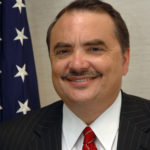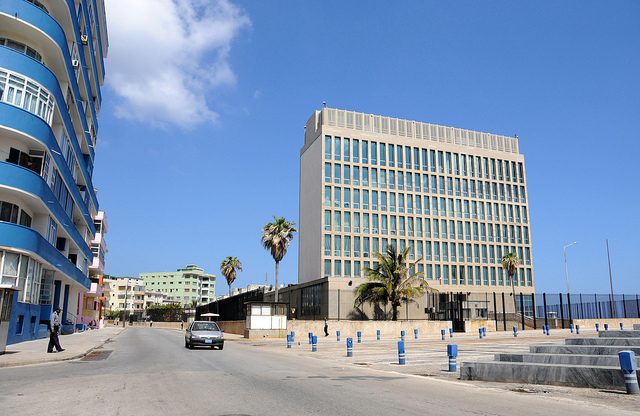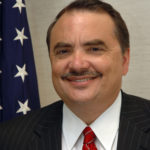(OPINION) THE WORSENING OF CUBA AND U.S. RELATIONS.
When President Barack Obama announced his intention to normalize relations with Cuba in 2014, critics scoffed that no accommodation was possible with the Castro regime and that it would be only a matter of time before Havana embarrassed the White House for even trying, as it had done before to previous administrations who sought détente.
We now know that last fall — in the middle of Obama’s final push to lock into place as much of his policy as he could — at least six U.S. diplomats based in Havana had to be medically evacuated to Miami for treatment after complaining of severe headaches, dizziness, and hearing loss. Some of the diplomats’ symptoms were so severe that they were forced to curtail their tours.
U.S. officials believe their illnesses were the result of prolonged exposure to some sort of covert sonic device “that operated outside the range of audible sound and had been deployed either inside or outside their residences.” In retaliation for this gross abuse of diplomatic norms, the Trump administration expelled two Cuban diplomats in Washington.
Speaking last Friday, Secretary of State Rex Tillerson said, “We hold the Cuban authorities responsible for finding out who is carrying out these health attacks on not just our diplomats but, as you’ve seen now, there are other cases with other diplomats involved,” referring to the fact that the Canadian government revealed their personnel had suffered similar symptoms.
The Castro regime’s response was as arrogant as it was mendacious, professing “Cuba has never permitted, nor will permit, that Cuban territory be used for any action against accredited diplomatic officials or their families, with no exception.”
The fact is that the Cuban government has been abusing U.S. personnel posted to Havana for decades.
The fact is that the Cuban government has been abusing U.S. personnel posted to Havana for decades. In 2003, the State Department provided a declassified cable to Congress detailing the ongoing physical and psychological harassment of U.S. personnel “to frustrate routine business, occupy resources, demoralize personnel, and generally hinder efforts to advance U.S. policy goals.” According to the cable, “The harassment begins from the moment USINT personnel and their belongings enter Cuba. Cuban agents routinely enter U.S. employee residences to search belongings and papers, enter computers and gather other information thought to be useful from an intelligence point of view. Vehicles are also targeted. In many instances, no effort is made to hide the intrusions.” Not only are vehicles vandalized — tires slashed, parts removed, windshields smashed — but in some instances human excrement is left behind in the diplomats’ homes.
The cable continues, “Electronic surveillance is pervasive, including monitoring of home phone and computer lines. U.S. personnel have had living-room conversations repeated or played back to them by strangers and unknown callers.” In one case, after one family privately discussed their daughter’s susceptibility to mosquito bites, “they returned home to find all of their windows open and the house full of mosquitoes.”
In 2007, the Department’s Inspector General issued a 64-page report asserting that the U.S. diplomatic mission in Havana suffered from poor morale as a result of the Cuban government’s deliberate efforts to create hardship and discontent in the lives of the diplomats. “Retaliations have ranged from the petty to the poisoning of family pets. The regime has recently gone to great lengths to harass some employees by holding up household goods and consumable shipments. The apparent goal has been to instigate dissension within USINT ranks.”
In 1996, human rights officer Robin Meyers reported her car was nearly rammed off the road by Cuban agents as she tried to attend a dissident gathering. Chillingly, this was the exact same regime technique that caused the deaths of prominent Cuban dissidents Osvaldo Payá and Harold Cepero in 2012.
Other forms of abuse over the years include attempted sexual entrapment, especially among married personnel, telephones ringing and front-door bells buzzing all hours of the night, freezers unplugged, and air conditioners turned full blast with windows opened in Havana’s tropical heat. One diplomat reported his mouthwash had been replaced with urine.One diplomat reported his mouthwash had been replaced with urine.
In addition, in another flagrant violation of the Vienna Convention on Diplomatic Relations, the Castro regime has broken into diplomatic pouches — deliveries to the mission from the United States — to investigate their contents.
There will be those who will attempt to explain away this sordid record as “spy-vs-spy” games, as if both sides were equally at fault, as if FBI agents try to run Cuban diplomats off the road or defecate in their homes. Indeed, in the wake of these latest revelations, President Obama’s former National Security Council senior advisor Ben Rhodes professed surprise: “It just doesn’t strike me as something the Cuban government would do.”
But the historical record is clear that this is something the Cuban government is perfectly willing to do. Even if it may have been a surveillance operation “gone awry,” as some have speculated, the same malevolent motivation on the part of the Cuban government still applies: that the United States is the enemy and its personnel in Havana will be treated as such — and international conventions be damned.
And therein lies the fundamental flaw of Obama’s policy, that somehow a relationship with the Castro regime can be normalized. But attempting to normalize the abnormal is a fool’s errand and will only backfire on U.S. interests and the interests of the Cuban people. President Trump has already expressed his disdain for Obama’s Cuba policy as too one-sided and begun a policy of roll-back. It cannot come soon enough.
Opinion: Author: José R. Cardenas was acting assistant administrator for Latin America at the U.S. Agency for International Development in the George W. Bush administration.(OPINIÓN) EL EMPEORAMIENTO DE LAS RELACIONES ENTRE CUBA Y ESTADOS UNIDOS.
Cuando el presidente Barack Obama anunció su intención de normalizar las relaciones con Cuba en 2014, los críticos se burlaron de que no era posible acomodar al régimen castrista y que sería sólo cuestión de tiempo antes de que La Habana avergonzara a la Casa Blanca por intentar, Antes a administraciones anteriores que buscaban la distensión.
Ahora sabemos que el otoño pasado, en medio del último empujón de Obama para poner en práctica lo más posible su política, al menos seis diplomáticos estadounidenses radicados en La Habana tuvieron que ser evacuados a Miami para recibir tratamiento después de quejarse de graves dolores de cabeza, Mareos y pérdida de audición. Algunos de los síntomas de los diplomáticos eran tan severos que se vieron obligados a restringir sus viajes.
Las autoridades estadounidenses creen que sus enfermedades fueron el resultado de una exposición prolongada a algún tipo de dispositivo sónico encubierto “que funcionaba fuera de la gama de sonidos audibles y se había desplegado dentro o fuera de sus residencias”. En represalia por este abuso de normas diplomáticas, El gobierno de Trump expulsó a dos diplomáticos cubanos en Washington.
En declaraciones el viernes pasado, el secretario de Estado, Rex Tillerson, dijo: “Tenemos a las autoridades cubanas responsables de averiguar quién está llevando a cabo estos ataques de salud no sólo a nuestros diplomáticos, sino que, como ustedes han visto ahora, hay otros casos con otros diplomáticos involucrados , “Refiriéndose al hecho de que el gobierno canadiense reveló que su personal había sufrido síntomas similares.
La respuesta del régimen de Castro fue tan arrogante como mendaz, declarando que “Cuba nunca ha permitido ni permitirá que el territorio cubano sea utilizado para cualquier acción contra funcionarios diplomáticos acreditados o sus familias, sin excepción”.
El hecho es que el gobierno cubano ha estado abusando del personal estadounidense enviado a La Habana por décadas.
El hecho es que el gobierno cubano ha estado abusando del personal estadounidense enviado a La Habana por décadas. En 2003, el Departamento de Estado proporcionó un cable desclasificado al Congreso detallando el acoso físico y psicológico del personal estadounidense “para frustrar los negocios rutinarios, ocupar recursos, desmoralizar al personal y, en general, obstaculizar los esfuerzos para avanzar en los objetivos de la política estadounidense” “El acoso comienza desde el momento en que el personal de USINT y sus pertenencias ingresan a Cuba. Los agentes cubanos entran rutinariamente en las residencias de los empleados de los Estados Unidos para buscar pertenencias y papeles, ingresar a las computadoras y recopilar otra información que se piensa que es útil desde el punto de vista de la inteligencia. Los vehículos también son blanco. En muchos casos, no se hace ningún esfuerzo para esconder las intrusiones. “No sólo se vandalizan los vehículos – los neumáticos cortados, las piezas retiradas, los parabrisas destrozados -, sino que en algunos casos se deja un excremento humano en las casas de los diplomáticos.
El cable continúa: “La vigilancia electrónica es omnipresente, incluyendo el monitoreo del teléfono doméstico y las líneas de computadoras. En un caso, después de que una familia discutió en privado la susceptibilidad de su hija a las picaduras de mosquitos, “regresaron a casa para encontrar todas sus ventanas abiertas y el Casa llena de mosquitos “.
En 2007, el Inspector General del Departamento publicó un informe de 64 páginas en el que afirmaba que la misión diplomática de los Estados Unidos en La Habana sufrió de mala moral como resultado de los deliberados esfuerzos del gobierno cubano por crear dificultades y descontento en las vidas de los diplomáticos. “Las represalias han variado desde el pequeño hasta el envenenamiento de las mascotas de la familia. Recientemente, el régimen se ha esforzado mucho para acosar a algunos empleados mediante la celebración de artículos para el hogar y envíos de consumibles. El objetivo aparente ha sido instigar disensiones dentro de las filas de USINT. ”
En 1996, el funcionario de derechos humanos Robin Meyers informó que su automóvil fue casi expulsado de la carretera por agentes cubanos mientras trataba de asistir a una reunión disidente. Esta fue la técnica del mismo régimen que causó la muerte de los disidentes cubanos Osvaldo Payá y Harold Cepero en 2012.
Otras formas de abuso a través de los años incluyen el intento de atrapamiento sexual, especialmente entre el personal casado, los teléfonos sonando y las campanas de la puerta principal zumbando todas las horas de la noche, los congeladores desenchufados y los acondicionadores de aire volteados con ventanas abiertas en el calor tropical de La Habana. Un diplomático informó que su enjuague bucal había sido reemplazado con orina. Un diplomático informó que su enjuague bucal había sido reemplazado con orina.
Además, en otra violación flagrante de la Convención de Viena sobre Relaciones Diplomáticas, el régimen de Castro ha roto en bolsas diplomáticas – entregas a la misión desde Estados Unidos – para investigar su contenido.
Habrá quienes intentarán explicar este sordido registro como juegos de “espía contra espía”, como si ambas partes estuvieran igualmente equivocadas, como si los agentes del FBI intentaran expulsar a los diplomáticos cubanos de la carretera o defecar en sus casas. De hecho, a raíz de estas últimas revelaciones, la forma del Presidente Obama
 Opinion: Autor. José R. Cárdenas fue subdirector interino para América Latina en la Agencia de los Estados Unidos para el Desarrollo Internacional en el gobierno de George W. Bush.
Opinion: Autor. José R. Cárdenas fue subdirector interino para América Latina en la Agencia de los Estados Unidos para el Desarrollo Internacional en el gobierno de George W. Bush.
Agencies/Foreign Policy/José R. Cardenas/Internet Photos/ Arnoldo Varona/ TheCubanHistory.com
THE CUBAN HISTORY, HOLLYWOOD.













